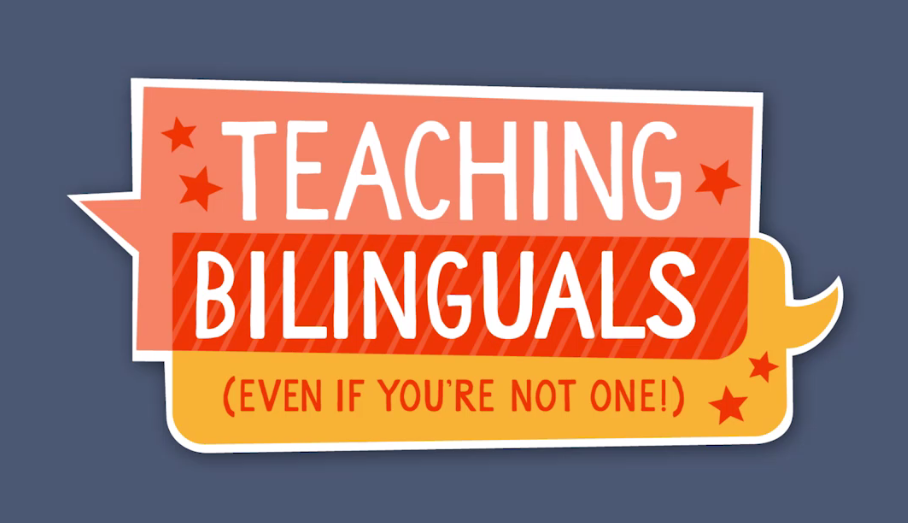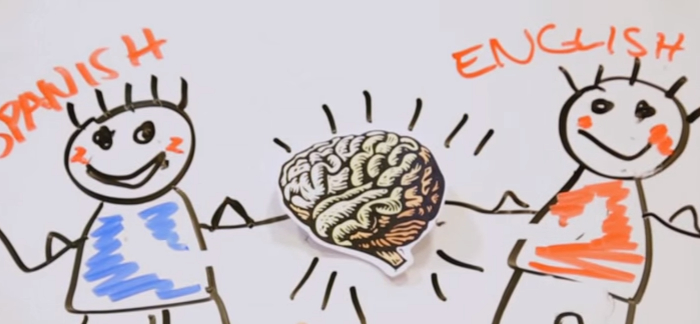Teaching Multilingual Children
Language and Power

I must admit that reading this week's assigned articles has left me a little frustrated with regard to the lack of context from which these articles originate. This may be partly due to my reading the articles out of order, after watching the CUNY lessons on teaching emergent bilinguists. In reading Aria by Ricardo Rodriguez, I gained a sense of how a child might live in a world as a non-English speaking person attending an English speaking, Catholic school. The child, Ricardo essentially had two personas....the private family life which was described as warm and loving, contrasted with the public personality of being a student in an English speaking world. Apparently Ricardo attended school at a time when English was the only spoken language in the schools and that was what was expected from the students as well. Unfortunately at the time, teachers did not attempt to incorporate trans-language skills, nor did they demonstrate any capacity for empathizing. In fact, in the article, the teacher even re-named the child Richard, the English variation of Ricardo. In my opinion, no teacher should change a child's name.... ever.
The writer, Ricardo even mentioned how he longed to be greeted by his real name, at least at the beginning of the day. He reminisces.... if only the teacher called him by his real name, it might have helped him develop a trusting relationship with his teacher. Sadly, the teachers also altered the fabric of Ricardo's home life when they visited the parents for the purpose of encouraging English to be spoken in the home. The family naturally agreed to this for the benefit of their children, and to please the teachers. Ricardo reflects on how that visit and request for English to be the spoken language in the home, changed his father, who became oddly silent after that visit. One could summize that the the father's interpretation was that it was wrong to speak Spanish in the home, or that to continue would ultimately cause harm to his childrens' educational process. The loving, intimate familial spoken language was halted. Over time the family was forced to assimilate into the American culture, thereby losing their own culture in the process.
Our challenge as teachers is to recognize and celebrate a child's identity while also equipping them with the literacy skills they'll need to be successful in a competitive educational and professional work force.

In Teaching Multilingual Children, Virginia Collier emphasizes the importance of truly appreciating the unique linguistic and cultural differences of each child. This is a key concept teachers should embrace. Collier suggests seven guidelines, one of which reminded me of our lesson on Delpit. Guideline number three: "Don't teach a second language in any way that challenges or seeks to eliminate the first language. To affirm the home language, means to not be told that they are wrong, or that what they say is vulgar, or bad." This parallels with our discussion about formal language; the language of those in power as compared to informal language which might be spoken in the home or with peers, with the example given, of the use of the work "Ask" vs. "Aks."
When I read Richard Rodriguez's statement that he would have liked to have his teachers address him in his L1, I thought back to this past school year. I put up a bulletin board with greetings in various languages. I would greet my students everyday, using a greeting in a different language every day. As the school progressed, I would invite students to share different phases in their L1's. However, I never addressed individual students using L1. I will be making this change in during the upcoming school year. Another way to build relationships!
ReplyDeleteI had a student named 'Albert' who my school mistakenly listed Alberto. He always resented the school as a whole for 'assuming his name would be more Hispanic" just because he was. I think its so important to honor names as well as their pronunciations. I have many students that would not correct me for mispronouncing a name and I would only learn from another student correcting me at a later date. I think about Delpit's article and how classrooms highlight a culture of power. My own name, Caro-LINE, often gets pronounced by professors/teachers as Caro-LYN. I know that as a white, English native, I have a different relationship and reaction to the mispronunciation, however, I rarely will make the correction. For reasons like these, I have many international friends from China who take on an 'English name,' for their American life. These separate identities can even have separate social media accounts and rarely will I see my friends conflate the two. My friend Renee, began university in America and only allows her parents and Chinese friends use her home name, Yang. It is interesting to see what impacts a name has on one's understanding of self.
ReplyDeleteYour last sentence stuck with me, "How is it possible for our educators to ignore evidence-based research?" I have asked myself the same question before and a lot of it is administrative constraints. Here are some thoughts. Districts buy curriculum and hire teachers sometimes too hastily. Bilingual programs are not as common as data suggests they perhaps should be for a couple reasons. Bilingual teachers who are certified to teach bilingual classes are not as common. You would need to be proficient in multiple languages before becoming certified. I have a good friend who did become bilingual teaching certified and he spent the first two years of teaching building curriculum because his district gave him little to no recourses. Bilingual programs can easily fall flat if not done well with proper supports for the teacher to do their job to their fullest potential. Additionally, bilingual programs are specific to 2 languages. Most schools have more diverse student populations, with multiple languages spoken by ELLS at home. ESL classrooms are "easier" to manage administratively because they can house as many languages as the schools needs and the teacher need only speak proficient English. Lastly, there are still many critics in the educational system who believe in teaching English as quickly as possible and full immersion is their plan. Of course their are other reasons for why we are not all acting out the data suggested strategies for teaching emergent bilinguals. These are just a few that came to mind most readily.
ReplyDelete"Our challenge as teachers is to recognize and celebrate a child's identity while also equipping them with the literacy skills they'll need to be successful in a competitive educational and professional work force." I could not have said it better myself! This is exactly what students need and now, we just need to better equip educator with tools to help them achieve this!
ReplyDeleteWhile the broader context may have felt confusing you do a great job sorting through the positions held by these authors. Great connections.
ReplyDelete